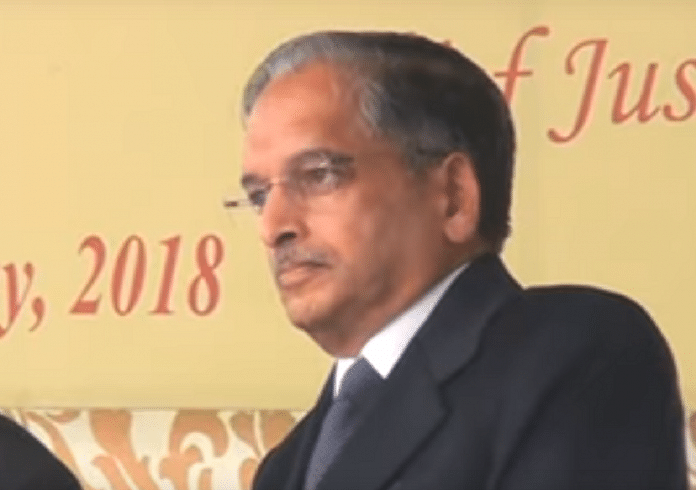Supreme Court lawyers claim there was an understanding between justices Agrawal & Chelameswar that the former would deliver the verdict in a power tariff case.
New Delhi: The Supreme Court has come under criticism for breaking its own rules after two judges — justices J. Chelameswar and R.K. Agrawal — retired without delivering a verdict in a case they heard and reserved for judgment three years ago.
Legal experts criticised both the judges for the ‘indiscipline’ in the higher judiciary but Agrawal received more flak, especially after he was handpicked by the government to head the National Consumer Disputes Redressal Commission despite this gaffe.
Questions were also raised on why Chelameswar could not have written the judgment. However, lawyers involved in the case say it was Agrawal who was tasked with delivering the judgment.
It is a fairly regular practice between judges to divide the work between themselves after initial deliberations. Once a judge is entrusted with writing the ruling, all the files related to the case are usually sent to that judge’s office.
Two lawyers involved in the case told ThePrint, on condition of anonymity, that Chelameswar had said in open court that Agrawal would be writing the judgment.
Agrawal retired on 4 May while Chelameswar will officially retire on 22 June — 10 days before the Supreme Court reopens after the summer break. It is likely that the high stakes case will have to be heard all over again since the apex court rules are silent on the status of such cases in which judgment is reserved but the judges who heard the case have retired.
The case in question
The case involved Delhi Electricity Regulatory Commission (DERC) and several private power distribution companies disagreeing over tariff fixed by the regulator.
The private discoms, BSES Rajdhani and BSES Yamuna, had knocked on the doors of the apex court seeking a relaxation in payment of dues to power generating PSUs.
The dispute was over the tariff between the two BSES entities, owned by the Anil Ambani-headed Reliance ADAG, on one side and the DERC on the other. The BSES entities averred that the tariff fixed by DERC did not cover their costs.
Trial proceedings in the case began in 2010, and after several hearings, the two-judge bench reserved the order on 10 March 2015. The bench kept the judgment pending and finally did not deliver it.
Who was to write the judgment?
“It seems there was an understanding between the two judges that justice Agrawal would write the judgment,” a lawyer said. “Over a year ago, when we mentioned the case before justice Chelameswar, he told us this and asked us to mention it before justice Agrawal . After that, the case was always listed before Agrawal, till he retired.”
Senior advocate Rajeev Dhawan, who appeared for BSES Rajdhani, also confirmed this.
“We were given the impression by justice Agrawal himself that he was responsible for pronouncing the verdict. The case was posted before him for over a year after he and Chelameswar started sitting in different benches,” said Dhawan.
“In fact, on several occasions, even before our case could come up, the judge would say it will be posted after three weeks.”
It is also learnt that Chelameswar had in fact even communicated this to then chief justice T.S. Thakur.
“These issues are brought to the notice of the CJI only when conversations between the judges have not yielded any result,” said a source privy to the communication between Chelameswar and Thakur. “It is obvious that taking it to the CJI was not the first reaction.”
ThePrint tried to get in touch with Agrawal through text messages and calls but is yet to get a response. His response will be added as soon as it is received.
Ritika Jain contributed to this story.



